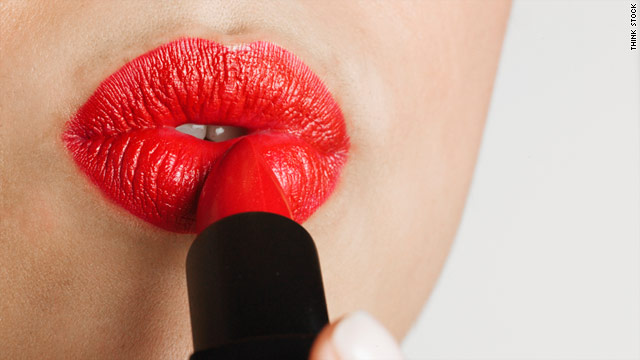Beauty hype: Why we buy anyway

- Beauty ads don't show the truth, but do women really care?
- Psychologists, cosmetics industry say women know advertisements are misleading
- Ads featuring Julia Roberts, Christy Turlington were banned in the UK for being retouched
(CNN) -- As a cosmetics saleswoman, Shannon Barnes constantly fielded the same question from women looking at mascara ads perched on her department store counter: Are those eyelashes real?
Um, no, she told them. Mascara alone would never -- could never -- produce eyelashes as full and thick as those on the models. Armed with the truth, most customers did the natural thing: they bought the mascara anyway, said Barnes, now a pro makeup artist in Sioux Falls, South Dakota.
"Even I can still be sucked in by the hype," said Barnes, who knows full well her facial artistry will be airbrushed by photographers until the models she works on barely resemble those she started with. "I know the extent of the deception. Sometimes I tell young girls, 'It's not a real image.'"
Do beauty ads tell the truth? Does it matter?
 'Pretty Woman' Julia Roberts too pretty?
'Pretty Woman' Julia Roberts too pretty?
 Julia Roberts makeup ad banned in UK
Julia Roberts makeup ad banned in UK
The banning this week of two L'Oreal ads featuring Julia Roberts and Christy Turlington in the UK for being so retouched they no longer reflected reality produced a pronounced shrug from across the pond, where psychologists and cosmetics industry gurus posited that American women are in on the game -- and they don't necessarily care.
'Pretty Woman' Julia Roberts too pretty? ![]()
"We don't want to see an ordinary person in the ads. We want to see a spectacular person," said Nancy Berk, a clinical psychologist in Pittsburgh. "You underestimate women when you think we can't see beyond the facts. We're aspiring to improve ... we want to feel like we've done what we can."
What is beauty and who has it?
The $10 billion cosmetics industry walks a fine line in promising lotions and potions will help consumers turn back the clock, diminish lines, lift eyelids or brighten dull complexions. The Federal Trade Commission, which regulates truth in advertising in nearly every sector, requires companies to be able to substantiate these claims, but creative and conditional words such as "reduces appearance of," "repairs hair" and "skin looks younger" don't lend themselves to easy or enforceable definitions.
"Doing these ads is not simply careless," said Mary Lou Quinlan, CEO of Just Ask a Woman, a New York City marketing agency that's done business with the likes of Maybelline and Estee Lauder. "They don't just write anything they want. It's creative, but it's accurate."
Just like beauty, however, accuracy and exaggeration are in the eye of the beholder. Paula Begoun, Renton, Washington author known as the "Cosmetics Cop" who was fired from her first two jobs for refusing to sell skin care products that didn't work as advertised, said hair care, anti-aging and anti-acne products tend to have the most exaggerated to downright false claims.
"An example of this type of wording is, 'Skin appears more even and looks lifted.' That states what women want to hear but doesn't state skin will be lifted or even," said Begoun, who has written 17 controversial books on the cosmetics industry and annually reviews thousands of products from more than 400 skin care companies. "But there are also many times when the ad or claim is just out and out not telling the truth."
What about women who really believe the hype and then realize they don't still look 25? They tend to be the same people who are dissatisfied with their lives in general and base their self-worth on how they look, experts say.
And they do have options, albeit expensive ones. Those inclined to go under the knife can place their hopes in cosmetic surgery, while many will continue to plunk down tens or hundreds of dollars, cruising from brand to brand, on products that may continue to disappoint.
"I don't think this is a conscious thought process, but we want to grab on to something," said Brooke Miller, a psychotherapist near San Francisco. "If women are really trying to figure out how to love themselves, trying to find that self-worth in a product or a cream, then these companies are not really selling a product, they're selling a state of mind."
"We never really don't have an option ... and that's why these companies are thriving," Miller added. "There's endless possibility. So many people are addicted to the process."
Even industry executives aren't immune.
"I know if I buy a tube of lipstick and put it on, I'm not going to look like Christy Turlington, but an ad with Christy Turlington is going to get my attention," said Farah Ahmed, vice president and associate general counsel at the Personal Care Products Council, a national trade association for the cosmetics industry. "It's human nature."
'Can I touch it?' The fascination with natural, African-American hair
